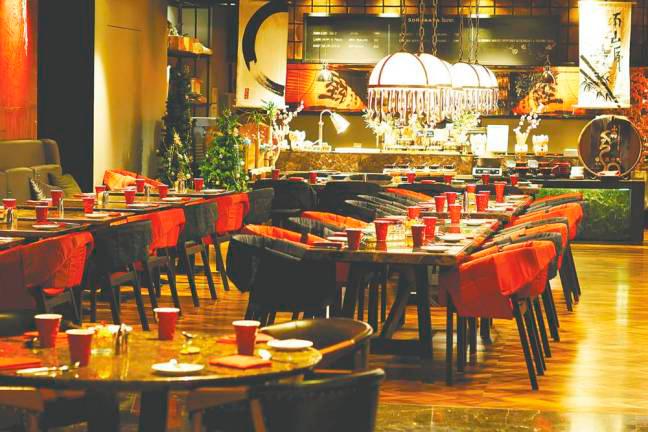PETALING JAYA: The music for restaurant owners has been less than entertaining lately. Thanks to unclear and inconsistent enforcement of the law, some restaurant owners have been penalised for playing background music in their premises while the melody continues to flow for other business establishments.
“There has been a lot of confusion, and it is a headache for us in the food and beverage (F&B) industry,” Restaurant and Bistro Owners Association vice-president Jeremy Lim told theSun.
Lim sees it as selective enforcement and victimisation of his segment of the F&B sector.
“If you walk into a fast food chain, salon or grocery chain store, there is music in the background but the owners of these premises are not slapped with a RM25,000 fine,” he pointed out.
He was referring to a recent local news portal report that a restaurant owner in Petaling Jaya was fined RM25,000 for playing piped-in music at his premises in March.
According to the report, the Majlis Bandaraya Petaling Jaya cited the restaurant owner for playing music without an entertainment licence.
However, Lim said the entertainment enactment in Selangor specifies that exceptions have been made for music played on a smartphone.
“I believe the enforcement team did not know the enactment in detail, nor did they take a business friendly approach,” he said.
He pointed out that almost all music played in restaurants and bistros are streamed through a smartphone. “However, if a licence is required, tell us so and we’ll apply for the licence. Also, make sure there is no red tape,” he added.
Lim said he has also received reports from members of the association that when they submit an application for an entertainment licence now, they are turned away on the basis that any form of entertainment is still prohibited.
Under the movement control order to curb the spread of Covid-19 introduced last year, entertainment such as “live” shows have been disallowed.
He said the lack of alignment between the standard operating procedures (SOP) issued by the National Security Council (NSC) and the local authorities’ by-laws has been frustrating.
Lim said representatives of the association were scheduled to meet Selangor Mentri Besar Datuk Seri Amirudin Shari in August to discuss the issue but the meeting was postponed. That was their third failed attempt to meet the mentri besar.
He said he had written to Selangor state legal adviser Datuk Salim Soib to seek clarity on the matter but has yet to receive a response. “It’s been a week now,” he said.
Lawyer Xenia Z.C. Lok explained that under Section 2(f) and 4(1) of the Entertainment Act, the “transmission of music by way of telephony and radio” is not considered entertainment.
By that definition, it would mean that restaurant owners who play music streamed through their smartphones for the listening pleasure of customers would not be running foul of the law.
However, music that is played on mediums apart from smartphones, such as CDs, is considered entertainment and therefore must be licensed.
Lok pointed out that under Article 75 of the Federal Constitution, if state or local government laws are inconsistent with federal legislations, then the federal legislations should prevail. Similarly, those who have been issued compounds for allegedly breaching the Covid-19 SOP introduced by local authorities could take the matter up for judicial review if they are convinced that it is inconsistent with NSC’s SOP.
Citing some examples, Lok said there have been instances when hawkers have taken local authorities to court after being penalised for breaking the SOP on the grounds that the actions contravened Articles 5 and 8 of the Federal Constitution. The hawkers had been cited for continuing with their businesses despite not being fully vaccinated.
Former MBPJ councillor Farhan Haziq Mohamed said under the Entertainment and Places of Entertainment Enactment 1995 of Selangor, which applies to all local authorities in the state, “entertainment” is defined as a “reproduction or broadcast by any means for any music, song or speech”.
“By that definition, intended or otherwise, it would mean that whoever wants to play music at his premises must have an entertainment licence, whether or not the premises are used for entertainment activities. In this case, it affects restaurant owners,” he told theSun.
Nonetheless, he said local councils should have their own policies to help them decide whether to penalise businesses for playing piped-in music.
“After all, shopping malls are already doing it without a hitch,” he added.










